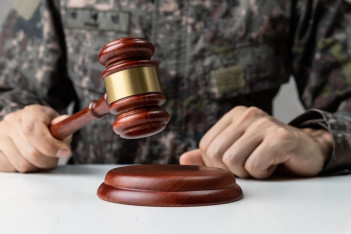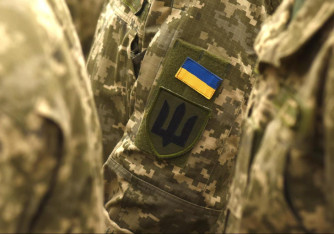How much is paid for AWOL in wartime - terms, criminal liability and consequences
During martial law, violations of military discipline are punished particularly severely, and desertion is one such crime. Criminal liability for this offence during wartime is much harsher than in peacetime, as it directly affects the combat capability of the army. Currently, many military personnel are interested in the term for desertion and whether it can be avoided.
This is possible, but in such cases it is difficult to do without a lawyer, as they help to build a defence strategy, find mitigating circumstances and close the official investigation.
What is the term of imprisonment for desertion in wartime and is it punishable by imprisonment?
During wartime, disciplinary violations are punished more severely, so many are concerned about whether desertion is punishable by imprisonment. If this is the first case of desertion and the soldier has returned voluntarily, the punishment can be avoided. But in other cases, i.e. if the offence is repeated or the soldier does not return to the unit, criminal liability applies — from 5 to 10 years' imprisonment, which is the sentence for desertion in wartime.
Administrative punishment: when is the term shorter?
In some situations, administrative or disciplinary punishment may be applied:
- Short period of absence. If the soldier was absent for less than three days, this is a disciplinary punishment; in the case of absence for more than three days but less than ten, administrative liability applies.
- First offence. In the case of the first unauthorised absence from the unit and provided that the soldier returns voluntarily, the soldier is not held accountable.
- Valid reason. If there is a documented valid reason, the punishment for the official investigation is cancelled and the investigation itself is terminated.
Thus, administrative or disciplinary punishment is possible for certain reasons, but in more serious circumstances, criminal liability should be expected.
Consequences of desertion for the soldier and his family
Such an act has a number of consequences:
- Administrative or criminal liability. If guilt is proven, the consequences of desertion in wartime include a severe reprimand, service in a disciplinary battalion, a fine or imprisonment.
- Loss of financial support. Without valid reasons for leaving the unit, payments and salaries will cease to be accrued.
- Loss of social guarantees. The soldier and his family may lose their right to benefits and financial compensation provided by law.
Therefore, desertion is not only about the personal reputation of the soldier, but also about the well-being of the family. It is therefore important to be aware of the legal consequences and to seek legal assistance in a timely manner.
Official investigation: when and why is it necessary?
An official investigation is conducted in the event of a violation of military duties. It is necessary to clarify the circumstances of the incident, evaluate the evidence and decide on further action (disciplinary, administrative or criminal punishment). However, if there are valid reasons for the violation, they can be indicated in the official investigation and the prosecution can be cancelled.
Is it possible to avoid punishment? Probation, amnesty and pardon
If there is a valid reason for leaving the unit without permission, probation is possible, but only if there is evidence. There is also an amnesty law that provides for full or partial exemption from liability. In Ukraine, amnesty may currently provide for a simplified procedure for returning to service. Pardon is applied in rare cases and to a person who has already been convicted; it provides for the deprivation or mitigation of the sentence.
What to do if you are accused of desertion?

Do not give explanations without a lawyer: Any words can be used against you, so seek the help of a military lawyer.

Gather evidence: Witness statements, health documents, correspondence, or other materials can help prove your case.

Check the legality of the procedures: Make sure that the deadlines, investigation procedures, and procedural rights are being followed — violations can be grounds for closing the case.
Contact a lawyer immediately!
The smartest thing to do if you are accused of desertion is to contact a lawyer immediately. They will assess the situation, calculate the risks and prospects of the case, and prepare a defence strategy. The sooner you get qualified help, the better your chances of avoiding punishment.
Document your actions (treatment, service, business trip)
Sometimes there are cases when military personnel are unable to inform the command of the reasons for their absence or, for example, the hospital has not forwarded the information to the military unit. In such cases, the opening of an official investigation is the result of a communication breakdown, so it is extremely important to keep all documents confirming the reason for the absence from duty — they may become key evidence for closing the investigation and cancelling the punishment.
Cooperate in an official investigation
Involvement in an official investigation is an opportunity to provide evidence of the reasons for the absence and explain your position. If this is the first violation and the serviceman is ready to return to the unit, it is worth telling the command about it so that it closes the investigation without bringing you to justice.
Conclusions - what does AWOL lead to and what term do you face?
Unauthorized leaving of the unit during wartime is a serious offense that can lead to imprisonment. To avoid such a severe punishment, it is worth seeking help from a legal specialist as soon as possible, who will help collect evidence, communicate with the command and facilitate the most comfortable return to service.








































